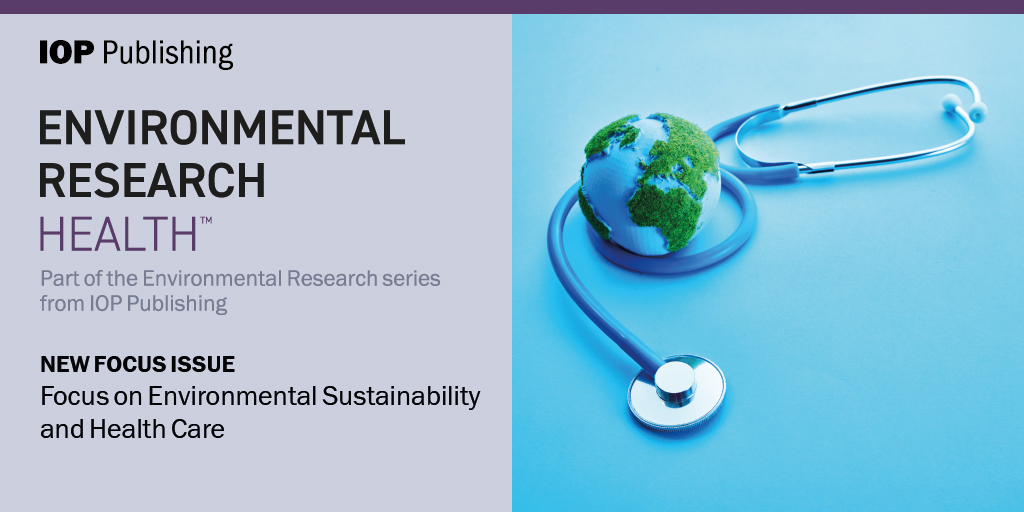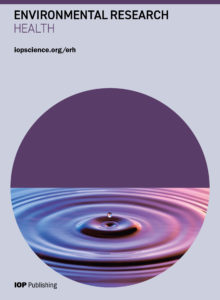ERH特刊征稿|Focus on Environmental Sustainability and Health Care

特刊详情
客座编辑
- Cristina S. Richie,英国爱丁堡大学
- Nancy S. Jecker,美国华盛顿大学医学院
- Federica Lucivero,英国牛津大学
- Gabrielle Samuel,英国伦敦国王学院
- Emily Senay,美国西奈山伊坎医学院
- Charles Dupras,加拿大蒙特利尔大学
- Phil Mackie,英国阿伯丁大学
主题范围
Sustainability and healthcare intersect along two primary pathways. First, the adverse effects of climate change impact population and individual health, by producing health hazards such as death and injury from flooding, famine, vector borne illness, pollution, and heat. Second, the healthcare sector itself exacerbates climate change through upstream and downstream carbon emitting practices.
Healthcare carbon emissions arise from upstream resource uses like water, energy, and medical supplies, which require infrastructure, raw-materials extraction, manufacturing, and transportation. Downstream sources of medical carbon include healthcare delivery such as consultations, procedures, pharmacy services, hospitalization, and medical research. Healthcare delivery infrastructure such as administrative services, procurement, food services, waste services, transportation, and operations management also emit carbon, as do medical research and medical engineering sectors. Related background systems—that is, industries not directly involved in health care provision, such as transportation—also use resources that generate carbon emissions.
An additional social concern at the intersection of sustainability, health and healthcare is distributive justice: the world’s poorest suffer disproportionately from environmental destruction and lack the financial resources to move away from climate-affected areas or gain access to protection from climate change health hazards, while also being excluded from the economic benefits of planetary exploitation.
This Focus Collection will examine these two aspects of Environmental Sustainability and Health Care, focussing on (but not limited to) the following topics:
Climate Change and Impacts on Populations
- Natural ecosystems and human health
- Strategies for addressing population health, such as Onehealth
- Current and projected human health impacts from climate change
- Environmental justice in health and healthcare, including just transitions, especially in low- and middle-income countries; environmental racism; social determinates of health; climate migration
- Techno-medical interventions to track or mitigate climate change health harms such as climate sensors and other digital tools
- Techno-health interventions to address the health of those impacted by climate change
Healthcare Carbon Emissions
- Sustainable healthcare schemes, such as NHS Carbon Reduction Strategy; Dutch Green Health Care Deal
- Activism amongst healthcare professionals
- Resource use of healthcare delivery
- Patient preference for (or against) sustainable health care
- Carbon impact of medical technologies and engineering
- Medical waste
- National, institutional, and private practice policy on health and climate
- Distributive justice and distributive responsibility
- Other metrics of environmental impact like biodiversity loss, pollution, waterswaste
- Greenwashing, transparency, accountability and other challenges in decarbonization
投稿流程
特刊文章与ERH期刊常规文章遵循相同的审稿流程和内容标准,并采用同样的投稿模式。
有关准备文章及投稿的详细信息,可以参阅IOPscience页面的作者指南。
作者可登入期刊主页进行在线投稿,先选择“文章类型”,然后在“选择特刊”的下拉框中选择“Focus on Environmental Sustainability and Health Care”。
投稿截止日期:2024年9月15日。
期刊介绍

- Environmental Research: Health(ERH)是一本多学科、开放获取的期刊,致力于在环境和公共卫生的层面上应对重要的全球挑战。并在影响/未来风险、复原力、环境减缓、环境适应、环境安全和最广泛意义上的解决方案方面进行努力。我们鼓励所有的研究方法,包括定性、定量、实验、理论和应用方法、暴露评估、实施研究以及政策分析。
